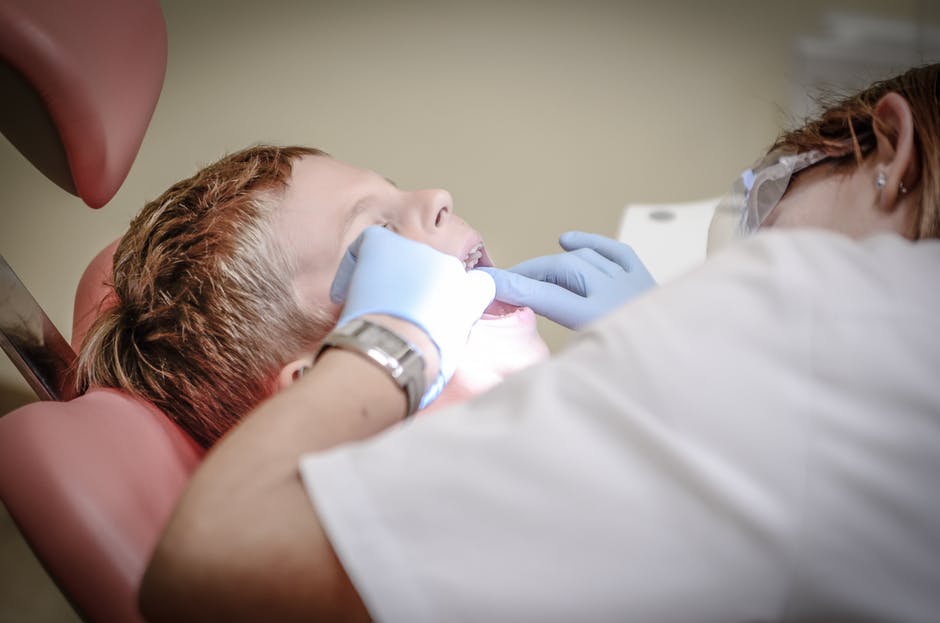

Good dental hygiene isn’t simply a habit. It’s a way to ensure strong and healthy teeth, not only through childhood but throughout your entire life. In a sugar obsessed culture such as ours, it’s more important than ever to teach your kids about dental hygiene. Fortunately, we’re living in an age in which cavities among kids have plummeted. In 1972, as many as 74% of kids had at least one cavity. By 2009 that number dropped to around 25%. If we persist in educating ourselves and our kids, and in instilling good habits early on, we can play a role in lowering those numbers even further.
Start Early
Baby teeth can appear as early as three or four months. As babies age, their teeth multiply. Although it’s not possible to explain things such as healthy teeth to babies still learning to talk, it’s important to instill the habit of brushing as early as possible.
Kids, even babies, can experience cavities and tooth decay. Since these teeth will fall out, some parents might not put much of an emphasis on daily dental hygiene. That’s a mistake. If a kid gets cavities or tooth decay in baby teeth, it increases their chances of experiencing those problems as adults.
Brushing their teeth for them as early as possible, as often as possible, can train them to accept it as a way of life. Teaching them that brushing is as much a part of the daily routine as bathing could help to develop a positive lifelong habit. It’s a crucial activity. Taking a hands on approach every day could teach your kids a valuable lesson, even if they’re not able to articulate it.
Flossing is as important as brushing. Kids are ready to floss when they’re teeth get closer together, usually starting around 2 years old. Flossing them at such an early age can, like brushing, help develop positive attitudes toward such an important aspect of dental hygiene.
If you’re unsure about how to floss kids, especially younger kids, knowledgeable dental hygienists can teach you the best methods. Some dental practices, such as the Hayward Dental Clinic, are well positioned to suit the needs of their patients, including teaching them how to comfort children during flossing.
Baby Teeth Are More Important Than You Might Think
Children learn to talk around the time their teeth poke through. If they develop imperfect teeth, or if they develop cavities or tooth decay, it could affect their speech patterns or ability to pronounce certain kinds of sounds. This could establish lifelong speech impediments or difficulties pronouncing specific words.
Their teeth also play an important role in the development of their digestion tracts. Teeth are crucial to the digestion process. They break down food while saliva produces enzymes to help with the digestion process. If baby teeth are broken or decayed, they might affect the breaking down of food which could, in turn, affect how the body digests that food.
Be Aware of “Healthy” Drink Alternatives
Few parents embrace the notion of allow their kids to drink soda. For good reason: your typical can or bottle of soda comes packed with sugar. As we all know, sugar is bad for teeth. Instead of soda, parents might choose from a variety of juices or drinks marketed toward parents, or even sports tricks designed to rehydrate people. These drinks are often presented as a healthier alternative to soda.
Sadly, that’s not always the case. Fruit juice and sports drinks can contain sugar. Allowing your kids to drink too much of either can have long term detrimental effects on their dental hygiene. If you’re interested in giving them drinks with flavor, try putting certain fruits or vegetables in water, which will absorb the flavor of a cucumber, say, or a pineapple. These drinks are not only refreshing, they’ll drastically reduce your kid’s sugar intake, which can make for stronger and healthier teeth.
Pay Attention to Them
An easy mistake to make as a parent with an older child is to send them into the bathroom to brush their teeth while you go about your business. Kids excel at cutting corners, especially when performing routines they’re not interested in or find “boring.”
Take the time to watch them as they brush. Ideally, a kid should brush from two minutes, making certain to get at every nook and cranny. To ensure a kid brushes properly for a sufficient amount of time, stand in the bathroom pay attention. Make sure they’ve developed and are reinforcing positive dental hygiene.
Better yet, brush your teeth as they brush theirs. Leading by example can transform this into something other than a chore. Even if you’re brushing and not talking, it can also allow you to spend time with your kids, intimate time free of bickering or annoyance. It can also help to reinforce the best habits imaginable.
If we’re lucky, we’ll keep our teeth intact throughout our lives. How we approach dental hygiene depends largely on the habits our parents instill in us. In addition to the above tips, be certain they make regular visits to the dentist. Introducing them to dental practices early on can reduce their fear of dentists, paving the way for responsible adults who take care of their teeth and ensure good teeth hygiene by regularly visiting a dentist.


